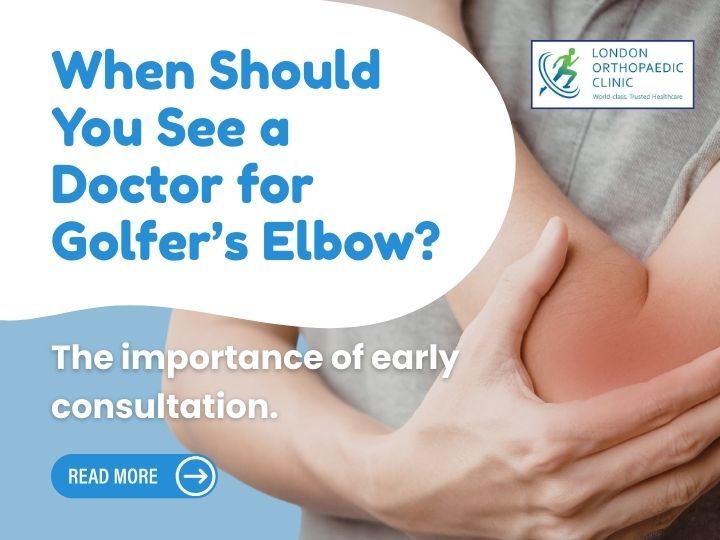By Dr. Vishal Sahni – Shoulder Specialist, London Orthopaedic Clinic, Nagpur
Why Women Over 40 Shouldn’t Ignore a Stiff Shoulder?

If you’re a woman over 40, and you’re waking up with stiffness in your shoulder that makes it difficult to wear a bra, comb your hair, or reach behind your back — it could be more than just “age-related pain.” You might be developing frozen shoulder, a condition that affects millions of women, particularly in their 40s and 50s.
At London Orthopaedic Clinic in Nagpur, Dr. Vishal Sahni, a shoulder specialist with over 24 years of experience in India and the UK, sees a rising number of middle-aged women suffering from this disabling yet treatable condition. Let’s dive deep into what causes frozen shoulder in women over 40, how to identify the symptoms early, and explore targeted treatment options tailored specifically for women.
WHAT EXACTLY IS FROZEN SHOULDER?
Also known as adhesive capsulitis, frozen shoulder is a condition where the shoulder joint capsule becomes inflamed and stiff, limiting motion and causing persistent pain.
The ball-and-socket joint of your shoulder is surrounded by a capsule of connective tissue. In frozen shoulder, this capsule thickens and tightens — leading to restriction of movement.
🧠 Quick Fact:
Frozen shoulder is more common in women than men, and the risk increases significantly after the age of 40.
WHY DOES IT AFFECT WOMEN OVER 40 MORE?
Hormonal changes, autoimmune conditions, and lifestyle factors all contribute. Here’s a breakdown:
1. Hormonal Imbalance During Perimenopause & Menopause
Estrogen fluctuations during menopause impact connective tissues. The reduction in estrogen makes the shoulder capsule more prone to inflammation and fibrosis, increasing the likelihood of frozen shoulder.
2. Sedentary Lifestyle or Post-Surgical Immobility
Many women reduce upper body activity after surgeries like C-section, breast surgery, or prolonged illness. Avoiding shoulder movement can lead to tightness and immobility, setting the stage for frozen shoulder.
3. Thyroid Disorders (Especially Hypothyroidism)
Women are more prone to hypothyroidism, which is strongly associated with adhesive capsulitis. Thyroid imbalance can alter metabolism and collagen production, contributing to joint stiffness.
4. Diabetes in Women
Women with diabetes are at a 2–4 times higher risk of developing frozen shoulder. High blood sugar affects collagen and connective tissues, making the shoulder capsule thicker and less elastic.
5. Autoimmune Conditions (e.g., Rheumatoid Arthritis)
Women with autoimmune conditions often experience joint inflammation. This inflammation can lead to the formation of scar tissue in the shoulder joint, resulting in frozen shoulder.
SYMPTOMS WOMEN MUST WATCH FOR
1. Persistent Shoulder Pain
The pain often begins as a mild, dull ache deep inside the shoulder and gradually worsens, especially at night. For women over 40, this may seem like a sign of aging or fatigue, but consistent pain lasting more than a few weeks warrants medical attention.
2. Stiffness in Shoulder Movement
If you’re finding it difficult to perform everyday tasks like wearing a bra, putting on a blouse, or reaching overhead — this could be an early sign. The stiffness gradually increases and limits arm motion.
3. Limited Range of Motion
You might notice a progressive inability to move your shoulder in all directions — up, behind the back, or across the body. Even lifting a bag or combing hair becomes a challenge.
4. Pain at Rest
One of the most frustrating aspects is shoulder pain even when you’re doing nothing. This pain can disrupt sleep and impact your mental well-being.
5. Weakness in the Affected Arm
Due to disuse and stiffness, your shoulder muscles weaken over time. You may feel your arm is less strong or tire quickly while performing daily chores.
THE 3 STAGES OF FROZEN SHOULDER
Understanding the timeline helps women manage their expectations and plan treatment:
1. Freezing Stage (Lasts 6 weeks to 9 months)
This is the most painful stage. Pain begins gradually and intensifies, especially at night. Range of motion starts to reduce, making daily tasks harder.
2. Frozen Stage (Lasts 4 to 12 months)
Pain may reduce slightly, but stiffness becomes severe. The shoulder feels locked. Women often struggle with routine activities like dressing, cooking, or even hugging someone.
3. Thawing Stage (Lasts 6 months to 2 years)
Motion begins to return slowly. Pain continues to decrease. With proper treatment and exercise, most women regain functional movement.
TARGETED TREATMENT OPTIONS FOR WOMEN OVER 40 YEARS
At London Orthopaedic Clinic, treatment is age, gender, and condition-specific. Dr. Vishal Sahni customises each care plan based on the stage of frozen shoulder and patient lifestyle.
Let’s explore the most effective options:
✅ 1. Medication & Pain Relief
Women in the freezing phase benefit from anti-inflammatory medications like NSAIDs to reduce pain and swelling. Short courses of steroids may also help. Post-menopausal women may be given vitamin D and calcium supplements for bone health.
✅ 2. Ultrasound-Guided Steroid Injections
A highly effective option, this delivers corticosteroids precisely into the inflamed joint. It reduces pain and swelling while improving motion — especially in the freezing stage.
✅ 3. Physiotherapy & Guided Exercise
Supervised movement is crucial. Tailored physiotherapy sessions focusing on stretching, mobility, and strengthening are especially helpful for women with sedentary routines or desk jobs.
✅ 4. Hydrodilatation (Joint Distension Therapy)
A minimally invasive, non-surgical option. A saline and steroid solution is injected to expand the capsule, break adhesions, and restore mobility.
✅ 5. Arthroscopic Capsular Release
In late-stage or unresponsive cases, this keyhole surgery releases the tight shoulder capsule. It is safe and effective for older women, with minimal recovery time.
✅ 6. Hormone Support & Thyroid Management
Treating underlying hormonal imbalances and thyroid dysfunction is essential. Frozen shoulder may not resolve fully unless the root hormonal issues are addressed.
REAL PATIENT STORIES – WOMEN WHO FOUGHT BACK
Mrs. Sunita Joshi, 48, Nagpur
“I couldn’t even put my sari pallu over my shoulder. Thanks to Dr. Sahni’s care and hydrodilatation, I got my life back in 6 weeks.”
Anita R., 53, School Teacher
“I thought surgery would be scary at this age. But arthroscopic release gave me back full movement without any fear.”
PROACTIVE STEPS TO PREVENT FROZEN SHOULDER
Here are 5 golden rules for women over 40:
- Avoid prolonged immobility after surgery or illness
- Keep shoulder joints active with daily stretches
- Manage thyroid and diabetes
- Get regular vitamin D levels checked
- Seek early orthopedic consultation at the first sign of shoulder stiffness
Book an Appointment
For consultation or wrist surgery in Nagpur, contact:
📍 London Orthopaedic Clinic
Dhantoli, Nagpur, Maharashtra
👨⚕️ Dr. Vishal Sahni – Shoulder & Wrist Specialist
📞 Call/Whatsapp: 95295 52938
🌐 Visit: https://londonorthopaedicclinicngp.com
- Which Doctor Is Best for Wrist Pain? Orthopedic vs Hand Specialist
- When Should You See a Doctor for Golfer’s Elbow?
- Can You Suggest the Best Doctor for Frozen Shoulder Near Me? Expert Guide for Nagpur Patients
- Calcium Deposits in Elbow Tendons: What to Do?
- Types of Wrist Surgery: Indications, Procedure & Recovery
FAQs – FROZEN SHOULDER IN WOMEN OVER 40
1. What is the main cause of frozen shoulder in women?
Frozen shoulder in women is mainly caused by hormonal changes, particularly during menopause, as well as thyroid dysfunction, diabetes, and prolonged immobility after surgeries or illness. These factors contribute to inflammation and thickening of the shoulder joint capsule.
2. How long does it take for frozen shoulder to heal in women over 40?
The condition typically resolves in 1.5 to 3 years. However, with early intervention — including steroid injections, physiotherapy, and advanced procedures like hydrodilatation or arthroscopy — recovery can be significantly faster.
3. Can frozen shoulder return after treatment?
Yes, in some women, especially those with diabetes or thyroid issues, frozen shoulder may recur in the same or opposite shoulder. Managing underlying conditions and continuing with shoulder mobility exercises can prevent recurrence.
4. Should I avoid all movement if my shoulder hurts?
No. While rest during severe pain is important, complete immobility can worsen stiffness. A guided physiotherapy program ensures safe movement without further injury.
5. Is frozen shoulder surgery risky for women above 50?
Not at all. Arthroscopic capsular release is a safe and minimally invasive option. Most women regain good shoulder function within weeks of surgery.
6. Does hormone replacement therapy help with frozen shoulder?
In some post-menopausal women, managing estrogen deficiency with medical guidance can improve tissue health and reduce symptoms. Always consult a doctor before starting HRT.
7. What role does stress play in frozen shoulder?
Chronic stress can increase muscle tension and reduce pain tolerance, worsening symptoms. Stress management through yoga, mindfulness, and adequate sleep can support healing.
8. Can I do yoga with frozen shoulder?
Yes, but only under the guidance of a physiotherapist or yoga expert trained in therapeutic movement. Gentle stretching and movement can aid recovery.
9. Is frozen shoulder related to arthritis?
While both involve joint pain and stiffness, frozen shoulder specifically affects the capsule of the shoulder joint, whereas arthritis involves cartilage damage and joint degeneration.
10. When should I see a shoulder specialist?
If shoulder pain persists beyond 2 weeks, or you notice reduced movement, consult a shoulder specialist early. Early treatment can prevent long-term disability.
11. Can diet help in managing frozen shoulder?
A balanced diet rich in anti-inflammatory foods, vitamin D, magnesium, and omega-3 fatty acids can support tissue repair and reduce inflammation. Hydration is also essential.
12. How can I sleep better with frozen shoulder pain?
Use pillows to support the affected arm, avoid sleeping on the painful side, and apply a warm compress before bedtime. Discuss pain management with your doctor for night-time relief.
13. Will frozen shoulder go away without treatment?
In some cases, it can resolve on its own, but this may take years. Timely treatment can shorten recovery time and improve quality of life.
14. Can frozen shoulder affect both shoulders?
Yes. Though it usually starts on one side, it can affect the other shoulder, especially in women with diabetes or thyroid issues.
15. What exercises are safe during frozen shoulder?
Gentle range-of-motion exercises, pendulum swings, wall climbing, and passive stretching are typically safe. Always follow a physiotherapist’s advice.
16. Is frozen shoulder a permanent disability?
No. With appropriate treatment and rehabilitation, most women recover full or near-full range of motion. Rarely, some stiffness may persist.
17. Can posture worsen frozen shoulder?
Yes. Poor posture, especially from desk jobs or prolonged screen use, can lead to shoulder misalignment and worsen symptoms.
18. Are there any home remedies that work?
Warm compresses, gentle movement, turmeric milk, and Epsom salt baths may provide temporary relief. However, they are not substitutes for medical treatment.
19. How is frozen shoulder diagnosed?
Diagnosis includes clinical examination, medical history, and imaging tests like X-rays or MRI to rule out other causes of shoulder pain.
20. Is frozen shoulder contagious or hereditary?
It is not contagious. There is no strong genetic link, but having a family history of diabetes or thyroid disease may increase the risk.
21. Can massage therapy help?
Yes, when done by a trained therapist, massage can reduce muscle tension, improve circulation, and ease stiffness — but should be done cautiously.
22. What is the role of vitamin D in frozen shoulder?
Vitamin D deficiency can impair calcium absorption and bone health, slowing recovery. Supplementation may help improve joint function.
23. Are women more prone than men?
Yes. Hormonal fluctuations, autoimmune disorders, and lifestyle factors make women — especially over 40 — more susceptible to frozen shoulder.
24. Can a frozen shoulder be misdiagnosed?
Yes. It can be mistaken for rotator cuff injuries, arthritis, or bursitis. That’s why a consultation with a shoulder specialist is crucial.
25. Will I need long-term physiotherapy?
Some women may need several months of physiotherapy, especially if they seek help late. Regular follow-ups ensure you’re on the right track and help modify treatment as needed.
-
Which Doctor Is Best for Wrist Pain? Orthopedic vs Hand Specialist
Wrist pain is one of those problems many people ignore until daily activities become difficult. Simple tasks like holding a mobile phone, typing on a laptop, lifting a bag, riding a two-wheeler, or even doing pooja at home can suddenly feel painful and frustrating. For some, wrist pain starts suddenly after a fall or injury.…
-
When Should You See a Doctor for Golfer’s Elbow?
Expert Orthopaedic Guide by Dr. Vishal Sahni, London Orthopedic Clinic Nagpur Golfer’s elbow is a very common condition today, especially among people who use their hands and arms repeatedly in daily life. Despite the name, you don’t have to be a golfer to suffer from it. Many working professionals, homemakers, gym-goers, tennis players, and even…
-
Can You Suggest the Best Doctor for Frozen Shoulder Near Me? Expert Guide for Nagpur Patients
If you are searching online for “Can you suggest the best doctor for frozen shoulder near me?”, you are not alone. Frozen shoulder is one of the most common causes of long-lasting shoulder pain and stiffness, especially in adults between 40 to 65 years of age. Many patients in Nagpur and nearby areas often experience…


